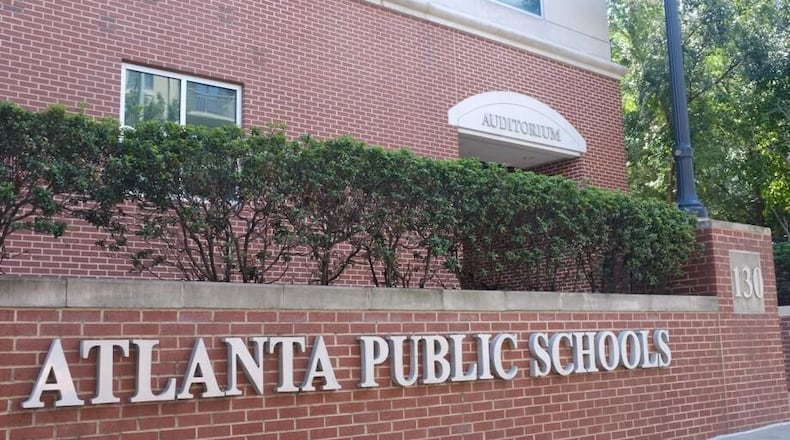The people leading the effort to split Buckhead away from the city of Atlanta have compared the process to a divorce. And just like in any divorce, there could be a big fight over who gets the kids.
Specifically, if Buckhead does indeed become its own city, what happens to the Atlanta Public Schools in the neighborhood and the thousands of children enrolled in them?
The answer is made supremely complicated by Georgia’s constitution, which prevents the creation of a new city school system anywhere in the state.
That means that any new “Buckhead City” won’t have Buckhead City Schools to go with it.
That would leave the new potential city with schools still owned by APS, but students who are no longer eligible to attend them, since they’re not Atlanta residents anymore.
It’s a complicated problem that Bill White, the hard-charging, newish Buckhead resident leading the effort to create the new city, said should have an easy solution.
“We intend for Buckhead City school children to remain within the APS system,” he said in a statement.
That seems easy enough, but like in divorces, the details can get very complicated.
For one thing, who will pay for the schools, if the tax base is in Buckhead, but the schools are Atlanta’s.
And how many students would be involved? Don’t ask the pro-Buckhead team, who referred me to APS to find out how many students go to those schools.
Then which schools would be in question if Buckhead secedes? Again, look at the public map or ask APS that question, they suggested.
White said he and his group have only discussed the schooling piece of a Buckhead City with their lawyers and state legislators. They have not raised the idea with APS yet.
That may be because what the Buckhead group wants to do has never been done before. Even though the “cityhood” movement around Atlanta isn’t new, none of the cities created recently, including Sandy Springs, Milton, or Johns Creek, have involved schools since students there already attended county public schools.
Even so, White said, “We are confident that students in the new Buckhead City can remain in the APS system, which is our strong preference, either through legislation or an intergovernmental agreement.”
Confidence is a wonderful thing, and it’s gotten White this far in an effort to address the crime plaguing the entire city of Atlanta, and Buckhead acutely.
But confidence doesn’t help the fact that the intergovernmental agreement that White is talking about may not be a legal option for a city without a school system.
Ed Lindsey, the former Buckhead state legislator leading the effort against a new Buckhead City, has described the process of breaking one city apart from another city like a high-level calculus problem, with the schools being a key example of why the effort is harder than it seems.
“You don’t enter into an intergovernmental agreement for something you have no authority to do,” Lindsey said. “I think they simply don’t understand how government works.”
As for the legislative solution that White mentioned, he’ll need to have the lawmakers from the city of Atlanta and Buckhead on board for any effort to change the boundaries of APS schools, a heavy lift that Atlanta legislators haven’t yet endorsed.
Rep. Todd Jones, R-Forsyth, sponsored the original legislation to begin the process of creating a new Buckhead City. He pointed out that the Georgia constitution guarantees a quality education for all children in the state.
“There’s going to have to be some more thinking on this as we go forward,” he said.
But it should be the working assumption, Jones said, that Buckhead children will go to APS schools if the relationship between Buckhead city and APS can be worked out.
APS, for its part, told me that they are aware of the general move to pull Buckhead out of Atlanta and, “We are monitoring its progress.”
Rep. Mary Margaret Oliver, D-Decatur, represents portions of Dekalb County and was involved in the meticulous negotiations required recently when the City of Atlanta annexed land surrounding Emory University.
It included a single firehouse and about six children whose families lived on the specific property involved. “It was very difficult,” she explained.
But negotiating for thousands of children to be a part of a city school system they don’t live in?
“That nobody is addressing these issues with clarity reflects the poor thinking behind the effort,” she said.
The fact that the schools in Buckhead seem to be an afterthought in this process isn’t surprising, since the move to break away from Atlanta had everything to do with the alarming spike in violent crime in the area and nothing to do with the popular schools, which many people move to Buckhead for their children to attend.
When White and his group originally started the secession effort, he said, “We have pretty much one major issue that we’re focused on, and it’s crime, crime and crime.”
But when you add schools to an effort that’s meant to solve for crime, it starts to feel a lot like the Brexit dilemma in England, which spun off so many ancillary problems there is a fight this week, literally, over how sausage gets made. (In Northern Ireland grocery stores, it turns out.)
Like Brexit, Buck-xit is an idea designed to solve one existential problem that could inadvertently cause a dozen more.
White told Fox News this week that if the referendum among residents to create a new city were today, 75% to 80% of residents would vote for it.
But White is talking about a move whose consequences on schools and kids nobody yet knows or understands, even White and his team.
“The divorce is final,” he said.
This divorce, if it happens, could get very messy.
Read ongoing coverage of the Buckhead City proposal from the AJC
About the Author
Keep Reading
The Latest
Featured




